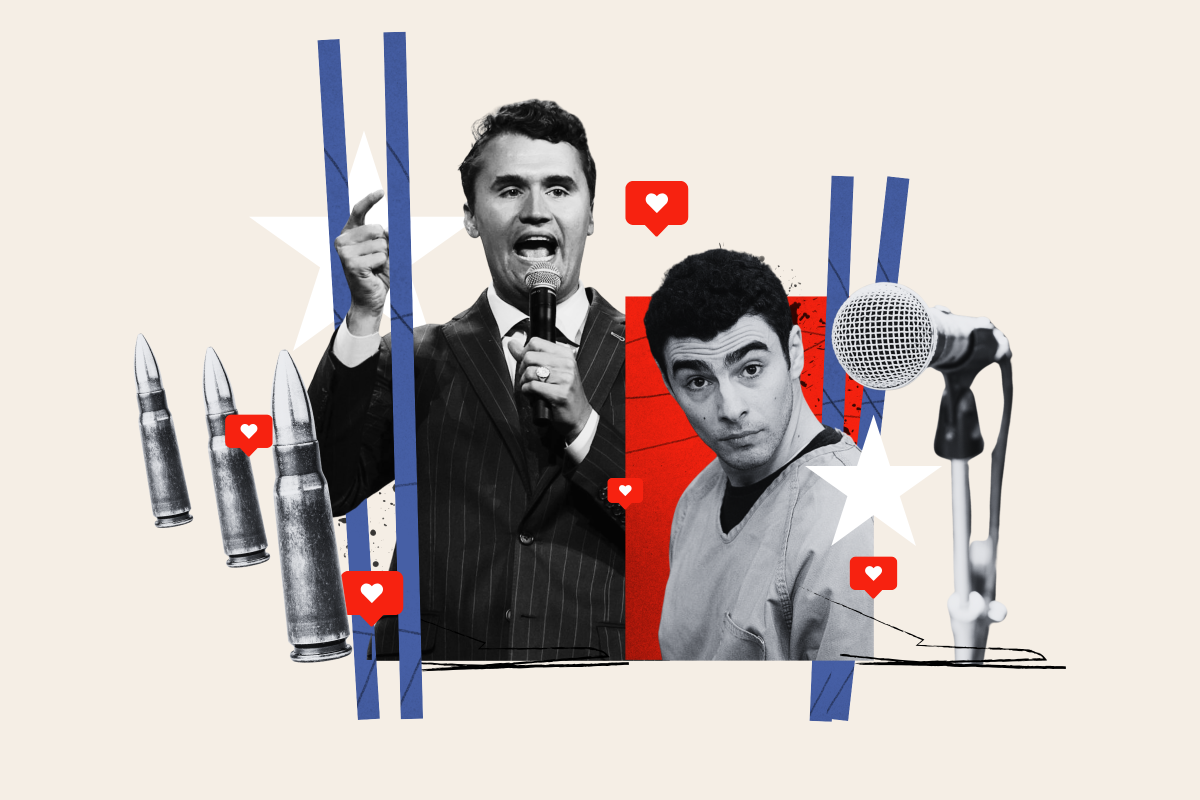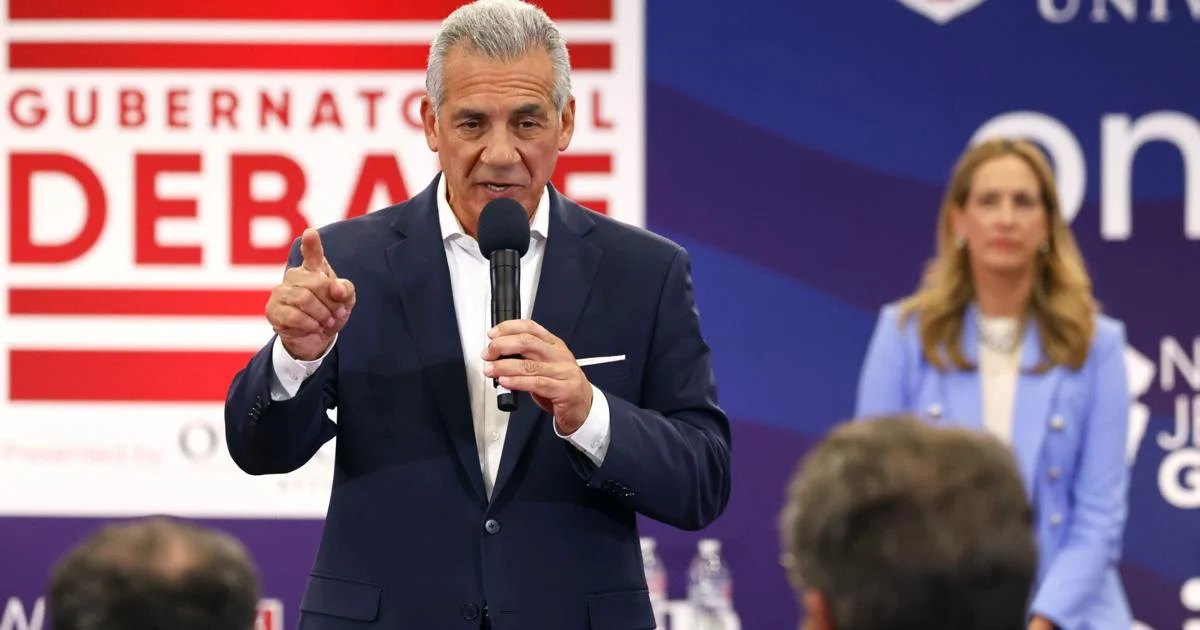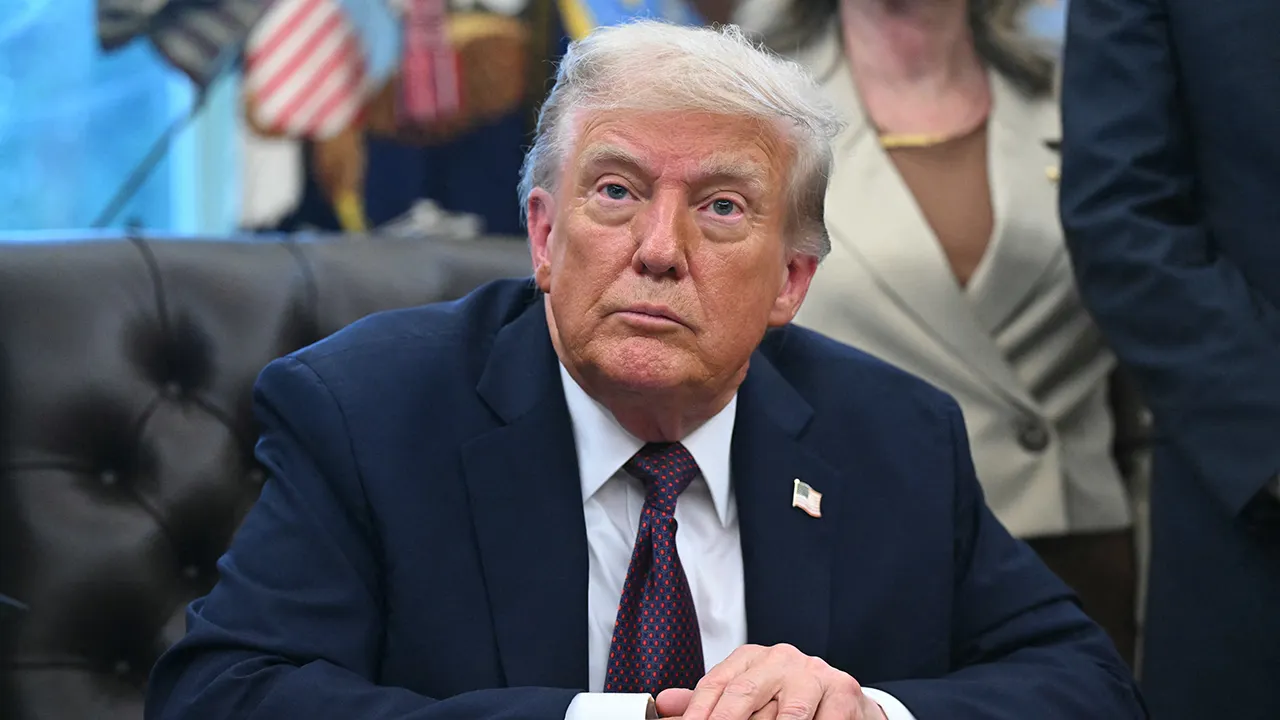
Generation Z is emerging as the most likely age group in America to see political violence as justified, new polling shows.
The YouGov polling from September 11, the day after the Trump ally and right-wing activist Charlie Kirk was assassinated in Utah, shows that 20 percent of Gen Z say violence can sometimes be justified in order to achieve political goals. That is compared to 14 percent of millennials, 8 percent of Gen X, and 3 percent of the Silent Generation and Baby Boomers.
Historically, young people globally have been more accepting of violence as a means to political change. However, experts who spoke to Newsweek said that the drivers of current trends in the United States are both familiar, such as dissatisfaction over the cost of living and disillusionment with political institutions, and new, such as the influence of social media and cultural factors such as changes in gender expectations.
America has seen numerous acts of politically motivated violence over the past year. In 2024, Trump was the target of an assassination attempt during an election campaign rally in Butler, Pennsylvania, where he was shot in the ear. In December that year, UnitedHealthcare CEO Brian Thompson was fatally shot on the street as he made his way to the company’s annual investor conference in New York City.
And on September 10 this year, Turning Point CEO Kirk was fatally shot on the campus of Utah Valley University. Tyler Robinson, 22, has been charged with his murder.
All three of these attacks had one thing in common: the suspects are Gen Z men.
Prosecutors say 27-year-old Luigi Mangione, who allegedly shot and killed Brian Thompson, was motivated by ideological hatred toward the health insurance industry. In a notebook found on him, he denounced insurers as “parasites” and blamed them for corporate greed and exploitation. Some phrases in the manifesto matched words engraved on shell casings used in the shooting, such as “deny” and “depose.”
State officials, as well as other members of the Republican party, have similarly decried Kirk’s assassination as “politically motivated.”
While guest-hosting an episode of The Charlie Kirk Show on Monday in honor of his “dear friend,” Vice President JD Vance blamed “left-wing extremism.” FBI Director Kash Patel claimed that Robinson “subscribed to left-wing ideology,” citing comments by his family.
But while Robinson’s motives and political views are not yet clear, charging documents show that his mother had noted that over the past year her son had become “more political.” His political stance started to lean to the left—in stark contrast to his parents—and he became more pro-gay and trans-oriented, the document added.
The motives of 20-year-old Thomas Matthew Crooks, who tried to assassinate Trump and was shot dead by the Secret Service, remain unclear. Prosecutors noted online searches about Trump and President Joe Biden, and the presence of photos of other prominent figures from both parties on his phone, though he had appeared to focus most on Trump specifically.
Declining Faith in Democracy
Young people have historically been more likely to be more supportive of political violence. The National Commission on the Causes and Prevention of Violence from 1968 captured U.S. public opinion on riots and assassinations after Martin Luther King Jr. and Robert F. Kennedy’s killings, and found younger Americans more likely than older ones to say riots were “sometimes justified.”
But Lucas Walsh, professor of youth politics at Monash University, said that Gen Z is coming of age in a period marked by “climate crisis, cost-of-living pressures, geopolitical conflict and the divisive platforms of social media.” These forces, he warned, have “amplified the justification of political violence.”
He added that this has eroded faith in democracy among Gen Z. He pointed to a 2023 international survey of 30 countries that revealed stark age divides in attitudes toward democracy. Among younger respondents, 42 percent said they were supportive of military rule, compared with 20 percent of older respondents who said the same. More than a third of young people also agreed that “a strong leader” who bypasses elections was “a good way to run a country,” compared with just over a quarter of older adults.
Similar signs about attitudes among Gen Z have also been seen after specific recent events in American history.
Following his 2020 loss to President Joe Biden, Trump repeatedly asserted that the election was “stolen,” alleging widespread voter fraud and filing lawsuits that were later almost universally dismissed for lack of evidence. It culminated in the January 6 Capitol riots in 2021, during which a mob of Trump supporters stormed the U.S. Capitol in an attempt to overturn the 2020 presidential election results. Rioters breached the Senate and House chambers, vandalized offices, and threatened lawmakers, leading to five deaths and dozens of injuries.
A YouGov survey conducted in December 2024 found that 16 percent of Gen Z respondents either strongly or somewhat approved of the actions taken during the Capitol takeover, higher than the 14 percent approval rate among the general adult population.
Economic Pressures and Political Violence
According to Lucas Walsh, professor of youth politics at Monash University, economic insecurity is a central factor in growing dissatisfaction with democracy among the youngest voters.
Around 58 percent of Gen Z report feeling only “somewhat in control” of their financial lives. Walsh said many young men, in particular, respond to perceived deprivation with anger.
Generation Z is entering adulthood under some of the toughest economic conditions in decades. McKinsey data shows that roughly one in four Gen Z employees hold multiple jobs, 26 percent report insufficient pay to support a decent quality of life, and 77 percent are actively seeking new employment—nearly double the rate of older workers. Earnings remain low relative to costs of living, with many Gen Z workers earning between $30,000 and $35,000 annually, while more than half live paycheck to paycheck.
Housing is especially burdensome, with nearly six in ten Gen Z renters considered “rent burdened,” spending more than 30 percent of their income on rent, and rates exceeding 70 percent in high-cost metro areas like Los Angeles and San Diego.
Cost-of-living pressures have mounted under Trump’s presidency despite promises to curb inflation. The Consumer Price Index showed prices rising 2.9 percent in August compared to the previous year—the sharpest increase since January, though still far blow the peak of 9.1 percent in June 2022 during the Biden administration. The annual income needed to buy a median-priced home now exceeds $114,000—a 70 percent increase since 2019.
Joan Williams, a sociologist at UC Hastings College of the Law, said such economic uncertainty may be hurting young men in particular, and driving political violence. “Nearly three-fourths (71percent) of Americans say it’s very important for a man to be a provider—and that’s become ever-harder for younger men even if they have a college education; much more so if they don’t,” she told Newsweek. “When men’s masculinity is threatened, they tend to double down on masculinity: supporting political violence is one way of doing so.”
Anger and Online Extremism
Joe Jacobson, founder of the Progress Action Fund, described the normalization of violence as “incredibly concerning,” linking it both to right-wing extremism and to a generation saturated with images of violence. “While the vast majority of young people rightfully do not justify political violence, those who do did not randomly wake up one day with bloodlust,” he said. “It’s a generation that’s been force-fed brain-dead slop on their algorithms, seen cops kneeling on necks, and for their entire lives, been desensitized to violence more than any other generation.”
Jackson Katz, the co-founder of the Young Men’s Research Initiative, highlighted the role of media and digital technologies in shaping attitudes. Gen Z has been immersed in “an entertainment media milieu” including video games, Hollywood films, virtual reality, and AI, exposing them to realistic depictions of violence. This, Katz argued, produces “a numbing effect … even dissociation, like trauma victims experience.”
Young men are particularly vulnerable to online extremism. Katz said. “They are getting bombarded with toxic slime online. This includes Groypers like Nick Fuentes preaching a politics of nihilism, and that women, trans people, and immigrants are the reason why their lives are s***. And when Democrats don’t speak to this frustration—or worse, blame young men for being ‘toxic’—it fuels a never-ending cycle of extremism.”
The Groypers, a far-right network led by Fuentes, advocate white nationalism, Christian conservatism, and antisemitism, often targeting mainstream conservative figures like Kirk as “too moderate.”
Following Kirk’s death, some speculated that his killer Tyler Robinson may have been exposed to these subcultures, but no credible evidence links him to the Groypers.
Nonetheless, Walsh noted that while a belief in democracy still persists among most young Americans, with extremist content flourishing online, that belief is “being tested to its limits.”
Jacobson added: “When every institution praises ‘democracy’ as some cherished thing, but you only make $7.25 an hour, you start questioning whether the rules mean anything at all.”



